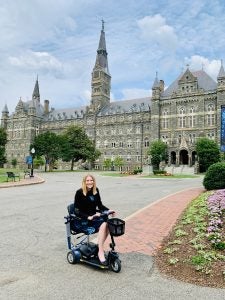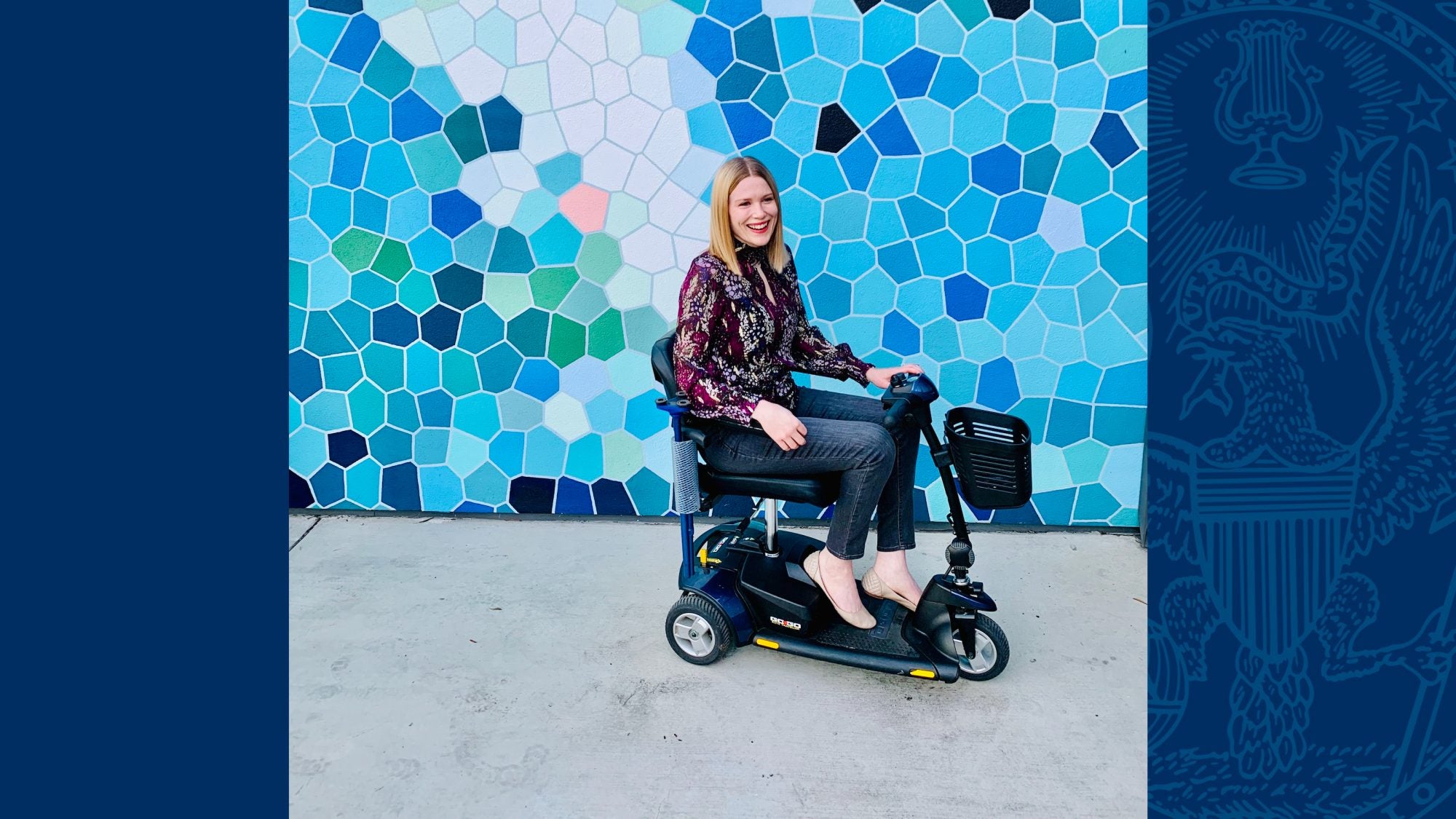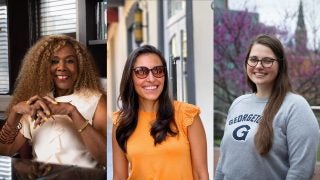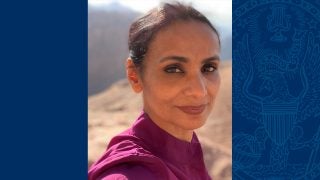Part of the Division of Student Affairs, the Disability Cultural Initiative will build the foundation for the eventual establishment of a fully-fledged Disability Cultural Center, which will coordinate and integrate the educational, academic, social and support programming for disabled students, faculty, staff, allies and community members interested in learning more about disability.
”The appointment of our first associate director of the Disability Cultural Initiative is an important next step in supporting and empowering disabled students and their allies at Georgetown,” says Jeanne F. Lord, interim vice president of student affairs and dean of students. “The ethos of Amy’s work is rooted in cura personalis, and we are excited about the passion and expertise she brings to working for and with disabled communities.”
In a recent interview, Kenny shared more about her disability pride and her vision for the Disability Cultural Initiative at Georgetown.
Q&A With Amy Kenny

What would you like the Georgetown community to know about you?
Probably the most important thing to know about me is that I’m proud to be disabled. I’m really excited to share that pride in disability culture with the Georgetown community. You might catch me on campus on my mobility scooter, named after Wonder Woman, and with my cane, named Eileen. I love a pun, and am happy to talk about my own journey towards disability pride. If you are invested in disability culture or want to learn more, I would love to collaborate with you!
Equally as important is that I’ve never met a pie I don’t like. Being from Australia, I love a savory pie, but I also of course love sweet pies.
What drew you to Georgetown?
The students made me want to apply. I followed the story of students advocating for this position, and I found their passion and activism really invigorating and remarkable. I was excited by the response from the administration to listen to what the students were advocating for. That seemed like a place that I want to be, and a model for other universities to follow when it comes to a Disability Cultural Center — to respond to what the students are advocating for, to invite others to do the same and to create a space where disability culture can be celebrated.
What are your goals for your new role, the Disability Cultural Initiative and the eventual Disability Cultural Center at Georgetown?
The overall mission is to educate and empower disabled folks, celebrate disability culture and advocate for a culture of access intimacy across campus. Access intimacy is a term from Mia Mingus. It’s believing disabled people when we share our access needs and then facilitating a flexible environment where those are met without shame. It’s that elusive, warm, fuzzy feeling that you get when someone else just gets your access needs.
Part of creating that culture will be educating folks on access, broadening the understanding of access needs beyond ramps, hosting “crip coffee time,” facilitating office hours for me to get to know the various disability communities on campus, creating opportunities for peer mentorship and bringing various artists-in-residence and speakers to campus to showcase different themes in disability culture. Part of the Disability Cultural Center will be hosting events where disability is celebrated, but part of our mission is to collaborate with other communities on campus to make sure that disabled people get to thrive in every space while at Georgetown.
The ultimate goal is to co-create space where disabled people (with apparent and non-apparent disabilities) can fully belong and thrive, where we don’t have to mask our disabilities or deal with the stigma or shame that many have around disability; a campus that fosters that culture of access intimacy.



